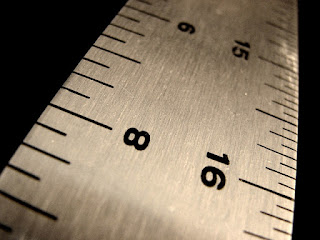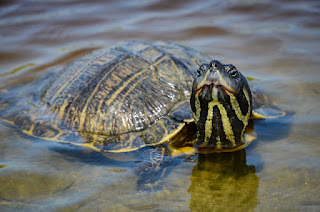We sometimes describe a steadily worsening situation as “going downhill.”
Examples of use:
“There’s still something alive here, but we’re failing it. It’s going downhill while everyone’s having meetings and conference calls.”
“The feeling ten years ago was that the town was going downhill, the shops were closing and young people were leaving.”
“And The Guardian’s Martin Belam pointed out that things started going downhill for the UK in 1999 – the year the rules changed to allow other countries to sing in English, which may have removed an advantage for the UK (and Ireland).”
The phrase can also be used in a literal sense, as with the cheese rolling race pictured above. You can read about/watch this year’s race down Cooper’s Hill, Gloucestershire, here.
Photo credit: ultraBobban (Creative Commons)
I blog about editing, proofreading, and the English language.
Comments and suggestions are welcome.
Many of the phrasal verbs and idioms addressed in this blog were highlighted during an English conversation class I ran a few years ago. I’m grateful to those who attended this for helping me see my native language from a different perspective.
Most of the examples used are quotes from news articles. Click on the links (in yellow) to view the full article.
Tuesday 28 May 2019
Saturday 25 May 2019
WHAT IS THE DIFFERENCE BETWEEN “FEW” AND “A FEW”?
The expression “a few” means a small number.
The Sherpa interviewed here is hopeful that he can continue climbing for several more years.
We use “few” as an adjective to emphasise a small number.
Omitting “a” from the above sentence (i.e. ‘I can climb for few more years’) would subtly change the meaning of the sentence, suggesting that the Sherpa cannot climb for much longer.
Another example: “Few people allowed themselves to be engaged beyond accepting leaflets.”
This stresses that the campaign described was unsuccessful, as the number of people engaged was extremely small.
If “a few” replaced “few” in the above quote (i.e. “A few people allowed themselves to be engaged beyond accepting leaflets”), it would give the sentence a more hopeful tone, indicating that at least some people were engaged by the campaign, even though it was only a small number.
Generally, “few” emphasises the smallness of a number, while “a few” can make the tone of a sentence more optimistic; a small number of something desirable is usually better than none.
Photo credit: Gunther Hagleitner (Creative Commons)
e.g. “‘I can climb for a few more years,’ he told the BBC before the 23rd attempt one week ago.”
The Sherpa interviewed here is hopeful that he can continue climbing for several more years.
We use “few” as an adjective to emphasise a small number.
Omitting “a” from the above sentence (i.e. ‘I can climb for few more years’) would subtly change the meaning of the sentence, suggesting that the Sherpa cannot climb for much longer.
Another example: “Few people allowed themselves to be engaged beyond accepting leaflets.”
This stresses that the campaign described was unsuccessful, as the number of people engaged was extremely small.
If “a few” replaced “few” in the above quote (i.e. “A few people allowed themselves to be engaged beyond accepting leaflets”), it would give the sentence a more hopeful tone, indicating that at least some people were engaged by the campaign, even though it was only a small number.
Generally, “few” emphasises the smallness of a number, while “a few” can make the tone of a sentence more optimistic; a small number of something desirable is usually better than none.
Photo credit: Gunther Hagleitner (Creative Commons)
Wednesday 22 May 2019
GIVE SOMEONE AN INCH AND THEY’LL TAKE A MILE
We say this of someone who, having accepted a small favour (assistance), becomes greedy and asks for increasingly larger favours.
Examples:
“I own a husky and a Labrador, and anyone with a husky will know if you give them an inch, they’ll take a mile when it comes to being off the lead.”
“But give censors an inch and they will take a mile. It would, I predict, be only a matter of time before Britain’s proud history of media freedom and freedom of speech lies in tatters.”
“Meanwhile, as if to prove the maxim ‘give them an inch and they’ll take a mile,’ the largest US corporations still turn to the government for subsidies.”
The phrase also features in Hazel O'Connor’s song, Give Me An Inch, from her 1980 album, Breaking Glass:
Photo credit: Lauren Manning (Creative Commons)
Examples:
“I own a husky and a Labrador, and anyone with a husky will know if you give them an inch, they’ll take a mile when it comes to being off the lead.”
“But give censors an inch and they will take a mile. It would, I predict, be only a matter of time before Britain’s proud history of media freedom and freedom of speech lies in tatters.”
“Meanwhile, as if to prove the maxim ‘give them an inch and they’ll take a mile,’ the largest US corporations still turn to the government for subsidies.”
The phrase also features in Hazel O'Connor’s song, Give Me An Inch, from her 1980 album, Breaking Glass:
Photo credit: Lauren Manning (Creative Commons)
Tuesday 21 May 2019
A BULL IN A CHINA SHOP
Someone who behaves like a bull in a china shop rushes into a situation without stopping to think and is often insensitive to other people’s feelings.
Examples:
“On one level, I had behaved like a bull in a china shop. With little knowledge of the process, I had threatened existing policies and interest groups.”
“I’m not looking for a ‘bull in a china shop’ kind of flatmate, I don’t want you to be always running around, throwing things around.”
“Graves had gone about the business of recollecting his wartime experience with a bewildering disregard for accuracy and with all the delicacy of a ‘bull in a china shop.’”
This phrase dates from the mid-nineteenth century [1].
[1] “bull” in The Oxford Dictionary of Phrase and Fable. Oxford University Press, 2005.
Photo credit: B4bees (Creative Commons)
Examples:
“On one level, I had behaved like a bull in a china shop. With little knowledge of the process, I had threatened existing policies and interest groups.”
“I’m not looking for a ‘bull in a china shop’ kind of flatmate, I don’t want you to be always running around, throwing things around.”
“Graves had gone about the business of recollecting his wartime experience with a bewildering disregard for accuracy and with all the delicacy of a ‘bull in a china shop.’”
This phrase dates from the mid-nineteenth century [1].
[1] “bull” in The Oxford Dictionary of Phrase and Fable. Oxford University Press, 2005.
Photo credit: B4bees (Creative Commons)
Monday 20 May 2019
GOING BANANAS
To go bananas is to become extremely excited or angry.
Examples:
“World Book Day 2019 is just around the corner and school children across Essex are getting set to go bananas over books.”
“If you are among those who go bananas over mangoes, Khandani Rajhdhani is the place for you to be.”
“Tesco customers go bananas over price increase”
This term originated in America in the 1950s [1].
[1] Cresswell, Julia. “banana” In The Oxford Dictionary of Word Origins. Oxford University Press, 2009.
Photo credit: Greg Hirson (Creative Commons)
Examples:
“World Book Day 2019 is just around the corner and school children across Essex are getting set to go bananas over books.”
“If you are among those who go bananas over mangoes, Khandani Rajhdhani is the place for you to be.”
“Tesco customers go bananas over price increase”
This term originated in America in the 1950s [1].
[1] Cresswell, Julia. “banana” In The Oxford Dictionary of Word Origins. Oxford University Press, 2009.
Photo credit: Greg Hirson (Creative Commons)
Monday 13 May 2019
COME OUT OF YOUR SHELL
To come out of (or retreat into) your shell means to become less (or more) shy and retiring [1].
“These little kids came out of their shell as they got creative at an Easter craft day.”
“University brought me out of my shell and thrust me into a world where I learnt to stand on my own two feet.”
“Not that I was against such an interaction, but it led to my first awkward moments, which served to push me further into my shell.”
Photo credit: Jonathan Tellier (Creative Commons)
[1] “shell” in Oxford Dictionary of English Idioms, edited by Ayto, John. Oxford University Press, 2009.
“These little kids came out of their shell as they got creative at an Easter craft day.”
“University brought me out of my shell and thrust me into a world where I learnt to stand on my own two feet.”
“Not that I was against such an interaction, but it led to my first awkward moments, which served to push me further into my shell.”
Photo credit: Jonathan Tellier (Creative Commons)
[1] “shell” in Oxford Dictionary of English Idioms, edited by Ayto, John. Oxford University Press, 2009.
Saturday 11 May 2019
YOU CAN’T MAKE A SILK PURSE OUT OF A SOW’S EAR
This idiom, or proverb, dates back to the 16th century [1], and it means that you can’t make a high-quality product from poor-quality materials.
Examples:
“As a vehicle dynamics engineer from another brand said to me this week, at least 80pc of how a car handles is down to the chassis. If it’s not up to standard, there’s only so much you can do with the rest of the set-up. You can’t make a silk purse out of a sow’s ear.”
“You can’t make a silk purse out of a sow’s ear. I’m amazed at the lack of quality in some bats. I can’t compete on price with the thousands that are imported every year but I can make something that will last and will perform – in the right hands.”
“‘Over the years, I’ve come to realize that, when the bean gets into the factory, 80 percent of what the chocolate can be is already determined,’ he explained. ‘You can go up from there or down from there, but you can’t make a silk purse out of a sow’s ear.’”
Photo credit: Jennie Rainsford (Creative Commons)
[1] “silk” In Oxford Dictionary of English Idioms, edited by Ayto, John. Oxford University Press, 2009.
Examples:
“As a vehicle dynamics engineer from another brand said to me this week, at least 80pc of how a car handles is down to the chassis. If it’s not up to standard, there’s only so much you can do with the rest of the set-up. You can’t make a silk purse out of a sow’s ear.”
“You can’t make a silk purse out of a sow’s ear. I’m amazed at the lack of quality in some bats. I can’t compete on price with the thousands that are imported every year but I can make something that will last and will perform – in the right hands.”
“‘Over the years, I’ve come to realize that, when the bean gets into the factory, 80 percent of what the chocolate can be is already determined,’ he explained. ‘You can go up from there or down from there, but you can’t make a silk purse out of a sow’s ear.’”
Photo credit: Jennie Rainsford (Creative Commons)
[1] “silk” In Oxford Dictionary of English Idioms, edited by Ayto, John. Oxford University Press, 2009.
Monday 6 May 2019
A WASTE OF SOMETHING
People frequently disagree about how money should be spent. The final cost of the new Scottish Parliament building at Holyrood (Edinburgh) was quoted as £414 million. Many people thought that it was wrong to spend so much money on this building and that the money could have been spent on more useful things, such as schools.
We can substitute “money” in this phrase with other nouns to talk about other things that we think are being used wrongly.
Examples:
We use the phrase “a waste of money” to describe something that we think money should not have been spent on.
e.g. “A council’s £7,500 spend on a new doormat for its office entrance has been branded ‘a waste of money’.”
We can substitute “money” in this phrase with other nouns to talk about other things that we think are being used wrongly.
Examples:
“I’m not about to burn my leather belts and shoes. To do so would be a waste of resources and just leads to the thing we’re trying to avoid – more consumption.”
“All the units, the past papers and areas the teachers recommended I study, seemed to be a waste of time.”
“Is a courtyard a good idea or a waste of space?”
“Is a courtyard a good idea or a waste of space?”
Photo credit: William Marnoch (Creative Commons)
Sunday 5 May 2019
A CHIP OFF THE OLD BLOCK
Someone who is “a chip off the old block” has a similar character or appearance to their mother or father. This term originates from the early 17th century. [1]
Examples:
“He’s a third generation chef and a chip off the old block, as anyone who’s been eating in Yorkshire down the last 30 years will testify.”
“Taylor took up rowing five to six years ago after first trying indoor rowing at school, but he’s also a chip off the old block in terms of his chosen sport.”
“The Mad King’s daughter could be a chip off the old block.”
[1] “chip” In The Oxford Dictionary of Phrase and Fable. Oxford University Press, 2005.
Photo credit: kattebelletje (Creative Commons)
Examples:
“He’s a third generation chef and a chip off the old block, as anyone who’s been eating in Yorkshire down the last 30 years will testify.”
“Taylor took up rowing five to six years ago after first trying indoor rowing at school, but he’s also a chip off the old block in terms of his chosen sport.”
“The Mad King’s daughter could be a chip off the old block.”
[1] “chip” In The Oxford Dictionary of Phrase and Fable. Oxford University Press, 2005.
Photo credit: kattebelletje (Creative Commons)
Saturday 4 May 2019
ALL EARS
Someone who is “all ears” is eager to listen.
Examples:
“Lecture halls are filled as students are all ears to hear his lectures about the universe, black holes, and terrestrial life.”
“This adorable pooch is all ears as he helps primary school pupils learn to read - and even has his own school uniform and backpack.”
“This comparison is good enough reason for me, although if one of our dedicated readers happens to know the answer, I’m all ears.”
Photo credit: Ian (Creative Commons)
Examples:
“Lecture halls are filled as students are all ears to hear his lectures about the universe, black holes, and terrestrial life.”
“This adorable pooch is all ears as he helps primary school pupils learn to read - and even has his own school uniform and backpack.”
“This comparison is good enough reason for me, although if one of our dedicated readers happens to know the answer, I’m all ears.”
Photo credit: Ian (Creative Commons)
Friday 3 May 2019
CONFLICTING MEANINGS – “OUTSTANDING”
Many English words have more than one meaning, and “outstanding” is one of them.
The Oxford Dictionary records three definitions for the adjective “outstanding.” It can mean “exceptionally good,” “clearly noticeable” or “not yet paid, resolved, or dealt with.”
This can cause confusion. For example, if your child’s school emails to say that their work is outstanding, either you can rejoice because they have done exceptionally well, or you need to go and have words with them because they’ve missed a deadline. Hopefully, the email contains additional information that explains which meaning applies.
Examples:
“As a result of the outstanding collaboration among surgeons, engineers, the Federal Aviation Administration (FAA), organ procurement specialists, pilots, nurses, and, ultimately, the patient, we were able to make a pioneering breakthrough in transplantation.” (outstanding = exceptionally good.)
“The first step in addressing this crisis is to deal head-on with the outstanding debt that is weighing down millions of families and should never have been required in the first place” (outstanding = unpaid)
“Glasgow MP Alison Thewliss said the government’s decision to combine four Jobcentres into one ‘smacked of an outstanding ignorance’ of the city’s needs.” (outstanding = clearly noticeable)
Photo credit: CollegeDegrees360 (Creative Commons Licence)
The Oxford Dictionary records three definitions for the adjective “outstanding.” It can mean “exceptionally good,” “clearly noticeable” or “not yet paid, resolved, or dealt with.”
This can cause confusion. For example, if your child’s school emails to say that their work is outstanding, either you can rejoice because they have done exceptionally well, or you need to go and have words with them because they’ve missed a deadline. Hopefully, the email contains additional information that explains which meaning applies.
Examples:
“As a result of the outstanding collaboration among surgeons, engineers, the Federal Aviation Administration (FAA), organ procurement specialists, pilots, nurses, and, ultimately, the patient, we were able to make a pioneering breakthrough in transplantation.” (outstanding = exceptionally good.)
“The first step in addressing this crisis is to deal head-on with the outstanding debt that is weighing down millions of families and should never have been required in the first place” (outstanding = unpaid)
“Glasgow MP Alison Thewliss said the government’s decision to combine four Jobcentres into one ‘smacked of an outstanding ignorance’ of the city’s needs.” (outstanding = clearly noticeable)
Photo credit: CollegeDegrees360 (Creative Commons Licence)
Thursday 2 May 2019
DESCRIBING HOW THINGS CHANGE IN RELATION TO ONE ANOTHER:
using “the” with comparative adjectives
We can use the following construction to describe how things change in relation to one another:
the + comparative adjective + clause + the + comparative adjective + clause.
The author A A Milne uses this many times in his “Winnie the Pooh” books, e.g.
“And all the time Winnie-the-Pooh had been trying to get the honey-jar off his head. The more he shook it, the more tightly it stuck.” [1]
Possibly the most well-known example is: “The more it snows (Tiddely pom), The more it goes (Tiddely pom), The more it goes (Tiddely pom), On Snowing.” [2]
This construction can be useful in scientific writing. For example,
“The larger the diameter, or aperture, of the telescope, the greater its ability to gather more light and the higher its resolution (or ability to image fine details).”
Other examples:
“And the more different pairs of socks you start with, the higher the odds of producing odd socks becomes.”
“the more people who travel, the cheaper the journey becomes for everyone.”
The construction is sometimes shortened to take the form:
the + comparative adjective + the + comparative adjective.
An example is the commonly used phrase, “the more the merrier,” meaning that a situation will be improved by more people or things, e.g. “It’s all about raising awareness so the more the merrier and if people wanted to get some sponsorship as well, that’s an added bonus.”
Other examples:
“The smaller the better, especially when it comes to carbon-rich fibrous materials such as cardboard, straw, newspaper, plant stalks, woody stems and autumn leaves which should ideally be shredded or chopped up before being added.”
“Weddings are one of those days brides are expected to look as delicate as a flower, but when it comes to bows on your gown—the larger, the better.”
[1] Milne, A. A.; Shepherd, E. H.; Winnie-the-Pooh (pp. 68–69). Egmont UK. Kindle Edition.
[2] Milne, A. A.; The House at Pooh Corner (p.4). Egmont UK Ltd. Kindle Edition.
Photo credit: Marco Verch (Creative Commons Licence)
the + comparative adjective + clause + the + comparative adjective + clause.
The author A A Milne uses this many times in his “Winnie the Pooh” books, e.g.
“And all the time Winnie-the-Pooh had been trying to get the honey-jar off his head. The more he shook it, the more tightly it stuck.” [1]
Possibly the most well-known example is: “The more it snows (Tiddely pom), The more it goes (Tiddely pom), The more it goes (Tiddely pom), On Snowing.” [2]
This construction can be useful in scientific writing. For example,
“The larger the diameter, or aperture, of the telescope, the greater its ability to gather more light and the higher its resolution (or ability to image fine details).”
Other examples:
“And the more different pairs of socks you start with, the higher the odds of producing odd socks becomes.”
“the more people who travel, the cheaper the journey becomes for everyone.”
The construction is sometimes shortened to take the form:
the + comparative adjective + the + comparative adjective.
An example is the commonly used phrase, “the more the merrier,” meaning that a situation will be improved by more people or things, e.g. “It’s all about raising awareness so the more the merrier and if people wanted to get some sponsorship as well, that’s an added bonus.”
Other examples:
“The smaller the better, especially when it comes to carbon-rich fibrous materials such as cardboard, straw, newspaper, plant stalks, woody stems and autumn leaves which should ideally be shredded or chopped up before being added.”
[1] Milne, A. A.; Shepherd, E. H.; Winnie-the-Pooh (pp. 68–69). Egmont UK. Kindle Edition.
[2] Milne, A. A.; The House at Pooh Corner (p.4). Egmont UK Ltd. Kindle Edition.
Photo credit: Marco Verch (Creative Commons Licence)
Subscribe to:
Posts (Atom)











